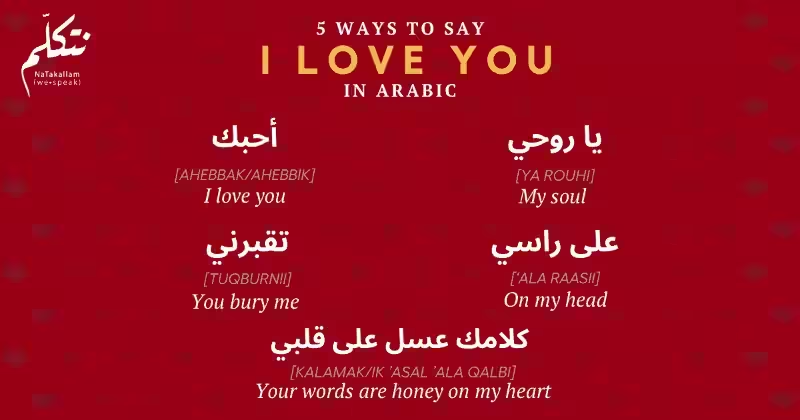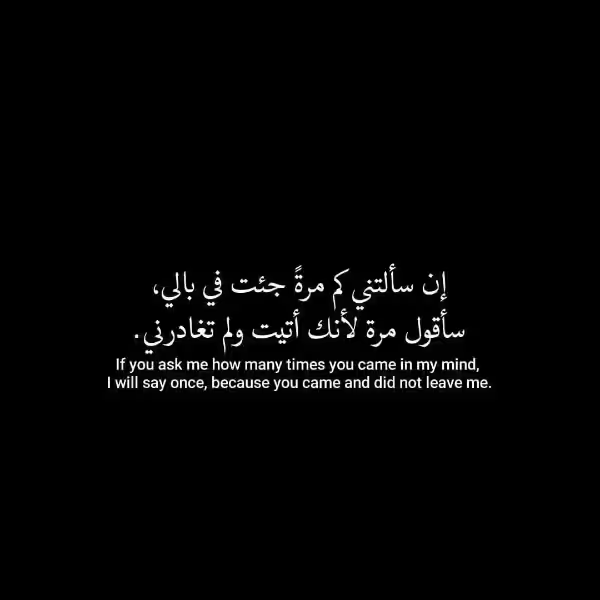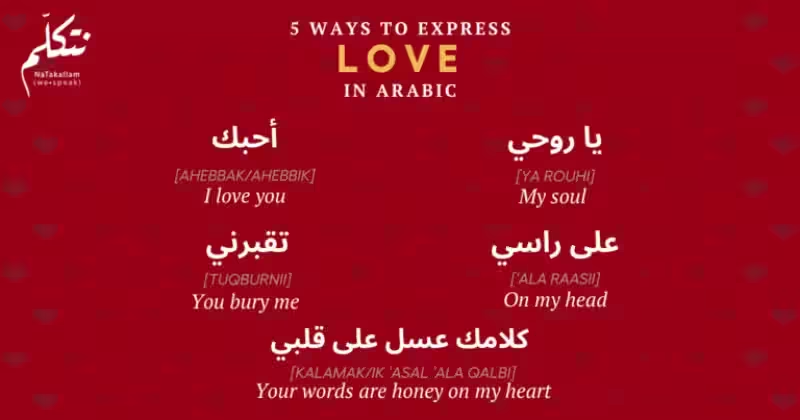
Is there a unique way to express your love in Arabic, beyond the simple “I love you”? This exploration delves into the rich tapestry of Arabic expressions, revealing the depth and nuance of conveying affection in this beautiful language.
The Power of Words in Love
Love, a universal emotion, often finds its most potent expression in the spoken word. In many cultures, heartfelt words hold a special significance, especially when celebrating milestones or simply expressing appreciation. Arabic, with its poetic history and rich linguistic heritage, offers a fascinating array of ways to articulate love, extending far beyond the literal translation of “I love you.” These expressions often weave in imagery, figurative language, and cultural context, creating a profound impact on the recipient. Learning these expressions can enhance your ability to communicate your feelings authentically and deeply.
Unveiling the Nuances of Affection
Beyond the straightforward declaration, Arabic offers a spectrum of expressions, ranging from everyday endearments to passionate declarations. These phrases often carry a layer of cultural significance, adding depth and intimacy to the communication. Understanding these nuances allows for a more nuanced and meaningful expression of affection. It allows you to connect with someone on a deeper emotional level, transcending mere words and delving into the heart of the relationship.
Expressions of Deep Affection
Arabic offers a rich vocabulary for expressing profound affection. These expressions go beyond casual greetings, touching on the very essence of love.
- Habibi/Habibti: These terms, meaning “my love,” are incredibly common and can be used among friends, family, and romantic partners, demonstrating the versatility of the language.
- Rohi: This translates to “my soul mate” and signifies a deep, eternal connection. This conveys a profound level of commitment and enduring love.
- Hayati: Meaning “my life,” this expression emphasizes the invaluable and cherished role the loved one plays in the speaker’s life.
- Eayni: Translating to “my eyes,” this emphasizes the preciousness of the loved one in the speaker’s life.
These expressions are just a small glimpse into the depth of meaning that can be conveyed when using Arabic. They showcase the beauty of the language and the ability to express love in a unique and meaningful way.
Everyday Expressions of Affection
Even the seemingly simple expressions of affection hold significant value in Arabic. These everyday phrases can foster a stronger bond and show your appreciation.
- Ma Atyaback/Ma Atyabeck: Literally translating to “How cute are you?”, these expressions demonstrate appreciation for the loved one’s endearing qualities. This simple phrase can convey a lot of affection without having to resort to grand declarations.
- Bahlam Feek/Bahlam Feeki: Meaning “I’m dreaming of you,” this expression allows you to communicate your thoughts and feelings without explicitly stating love. It creates a sense of intimacy and romantic longing.
- Ya Amar: A poetic comparison to someone’s beauty, referencing the moon. This figurative language illustrates a beautiful way to describe the loved one’s captivating presence.
These expressions, while seemingly simple, provide the bedrock of a strong relationship built on mutual affection and appreciation.
Expressions of Intense Longing
Some Arabic expressions delve into the depths of longing and the fear of losing one’s loved one.
- Tu’burni: This evocative phrase, meaning “bury me,” conveys intense longing and fear of life without the loved one. It highlights the profound emotional connection between the speaker and the recipient.
- Wahashtini: Meaning “I miss you,” this is a common expression of affection, particularly in Egypt. It demonstrates the importance of maintaining close emotional connection even when apart.
These expressions, while complex, showcase the depth of emotion that can be expressed in Arabic. They offer a way to articulate those feelings of profound longing and vulnerability.
Beyond the Phrases: Cultural Context
It’s crucial to remember that the true beauty of these Arabic expressions lies not just in the words themselves but also in the cultural context in which they are used. Understanding the cultural nuances and traditions surrounding these phrases adds a layer of richness and authenticity to your communication. Intonation, body language, and the specific situation can all contribute to the overall meaning. Taking the time to learn about these elements can enrich your interactions and deepen your understanding of Arabic culture.
Learning and Applying Arabic Expressions of Love
Learning these expressions of love is a journey of cultural understanding. It’s about more than just memorizing words; it’s about immersing yourself in the language and the culture that surrounds it. By incorporating these phrases into your communication, you can build stronger connections and express yourself with authenticity and grace.
In conclusion, the Arabic language offers a profound and beautiful way to express love, showing the depth and nuance of human emotion through words. Embark on this journey and discover the power of these expressions to enrich your relationships and your understanding of Arabic culture.
Frequently Asked Questions about Arabic Expressions of Love
This FAQ section addresses common inquiries regarding the use of Arabic expressions to express love and affection. It explores the nuances and depth of these expressions, focusing on their cultural significance and appropriateness.
What is the purpose of using Arabic expressions of love?
Arabic offers a rich vocabulary for expressing love beyond the simple “I love you.” Learning these phrases can deepen connections with loved ones and demonstrate a genuine appreciation for and understanding of Arabic culture. This can be particularly meaningful on special occasions but also appropriate for daily communication.
How are Arabic expressions of love different from other languages?
Arabic expressions often incorporate poetic imagery and metaphors, conveying a range of emotions from everyday affection to profound declarations of love in a more nuanced way compared to some other languages. They may go beyond a literal translation, emphasizing the emotional weight of the expression.
Are there different levels of intensity in Arabic expressions of love?
Yes, Arabic offers a spectrum of expressions, from casual affection to deep declarations of devotion. Some phrases express a gentle appreciation, while others convey intense longing or a deep sense of connection. The choice of expression depends on the relationship and the desired level of emotional intimacy.
How can I use these expressions appropriately?
Context is crucial when using Arabic expressions of love. Consider your relationship with the person you’re speaking to and the specific circumstances. A casual expression might be appropriate among close friends, while a more profound one might be suitable for a romantic partner. Knowing the cultural context is essential for expressing love authentically.
Can I use Arabic expressions of love in everyday conversations?
Absolutely. These expressions aren’t limited to special occasions. Using them regularly can foster a stronger connection with loved ones and demonstrate your understanding and appreciation of Arabic culture. Using these expressions appropriately can convey a deeper understanding of their emotional intent.
What should I keep in mind when learning Arabic expressions of love?
Accurate pronunciation and cultural sensitivity are key. Researching the correct pronunciation and understanding the cultural context associated with each expression will ensure your communication is meaningful and respectful. It is vital to apply a thoughtful and considerate approach.








